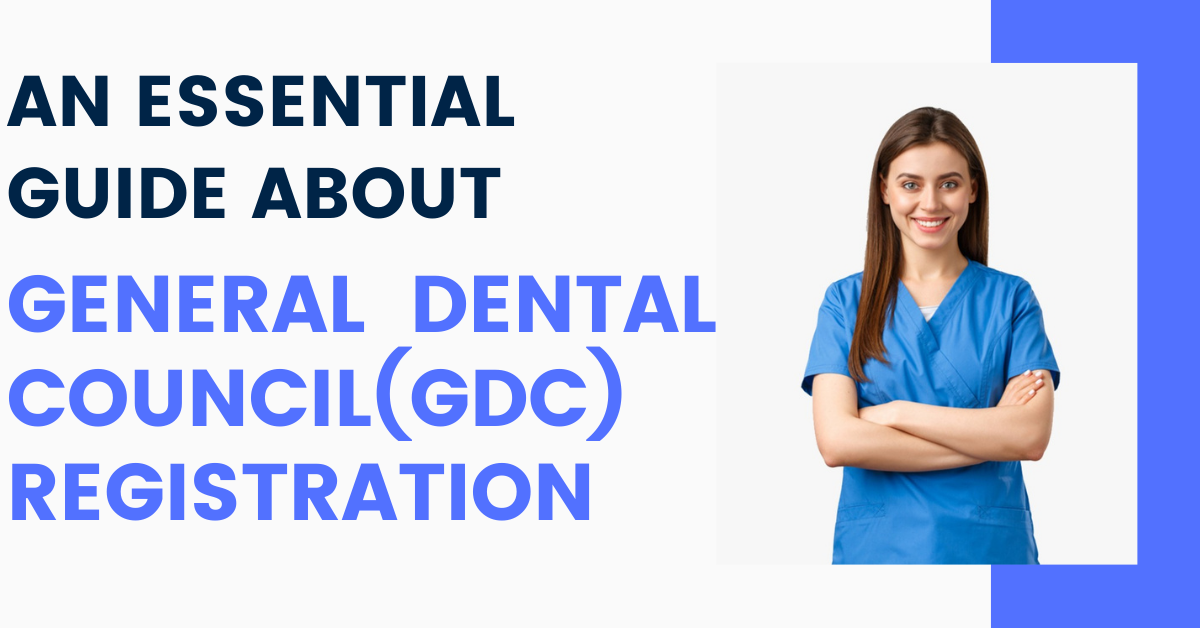A Complete Guide to UK Nurses Salaries, Benefits, Pay Scale & Bands 2024

UK Nurses Salaries And Benefits
What Is The Average Salary For A UK Nurse?
This is one of the most frequently asked questions by the Nurses who are looking for job in the UK to plan out their career. It's something that everyone from hopeful nurses to nurses who are certified in different countries is eager to know.
UK nurses work within the NHS or in the private sector, and their pay may differ significantly between these two sectors. Within the NHS pay scales change depending on the level of experience and professional advancement. In UK the nurses are classified as per different bands that are based upon the years of experience and the specialty.
Numerous job boards and recruiting sites that monitor pay of the jobs they advertise suggests that the median salary of nurses in the UK nurse is around the £35,000 to £38,000 year.
Incredibly, over 50% of adult nurses have an age of 41-60. While some get nurses after 40 and beyond but we also are aware that the majority of nurses who are newly certified are younger than 30.
It is likely that a nurse has at minimum five years of experience, which is in line with the £35,000-£38,000 age range. It is not the only way to measure the pay of private sector workers, but considering that the majority of nurses are employed in the NHS the figure is the most reliable.
Agenda For Change NHS Nursing Pay Scale And Bands 2023 to 2024
The bandings and calculator we use have been adjusted to reflect the increase in pay that was announced in May 2023, however they do not reflect the one-off pay increase that was awarded in this deal.
| Band | Years | Pay |
| 1 & 2 | 0-6+ | £22,383 |
| 3 | 0-2 | £22,816 |
| 2-6+ | £24,336 | |
| 4 | 0-3 | £25,147 |
| 3-6+ | £27,596 | |
| 5 | 0-2 | £28,4047 |
| 2-4 | £30,639 | |
| 4-7+ | £34,581 | |
| 6 | 0-2 | £35,392 |
| 2-5 | £37,350 | |
| 5-8 | £42,618 | |
| 7 | 0-2 | £43,742 |
| 2-5 | £45,996 | |
| 5-8+ | £50,056 | |
| 8a | 0-5 | £50,952 to £57,349 |
| 8b | 0-5+ | £58,972 to £68,525 |
| 8c | 0-5+ | £70,417 to £81,138 |
| 8d | 0-5+ | £83,571 to £96,376 |
| 9 | 0-5 | £99,891 |
| 0-5+ | £114,949 |
Private Vs Public Sector Nursing Pay in UK
Even though NHS nurse pay is well-organized but private sector pay can be very different. In the beginning, nursing staff in private practice who be employed by private healthcare organizations schools, charities or other institutions usually negotiate their salary. Similar to many other fields, positions are advertised with no specific salary figures or be accompanied by ‘salary dependent on the amount of experience'.
Therefore this means that the private sector pay vs. NHS pay issue is a difficult one to resolve. Simply put, some private sector nurses earn more than those employed in the NHS while others earn have less.
It is better to think about the other aspects of this issue - and also what type of person you are. The NHS provides stability and security. The benefits and salary bands are clear and constant. You are aware of where you stand when you are in the NHS job.
However, private nursing jobs can be different. Although you may be subject to an upper limit on banding at the NHS however, the same restrictions don't apply to private. Like other UK private sector employees If you believe that you're more valuable, you are able to visit your boss's office and inquire. However, nothing is guaranteed, therefore there is no increments or increases by the government.
But, in order to comprehend the benefits of working as a NHS nurses, you must look at the benefits package as well...
What Are The Key Benefits Of Being An NHS Nurse?
One of the most appealing aspects of working as an NHS nurse is the amazing benefits. They do significantly impact your financial situation overall.
Here are some significant benefits written:
1. NHS nurses get a salary that is competitive, which means they are fair compensation for their talents and experience. There is a predetermined wage scale for nurses and as they get experience and advance in their positions and become more experienced, they receive pay increases often.
2. Nurses who are employed by the NHS receive pension plans. This plan offers them an opportunity to save money for retirement through regular payments to the pension fund. After they retire the workforce, they will be eligible for pension payouts, which gives their financial protection.
3. NHS nurses are entitled to lots of annual holidays and the amount increases as they are employed there. Based on the hours they work they generally receive between 27 to 33 days off each year.
4. The NHS gives its nurses paternity and pregnancy leave. It also provides pay-for-time off to pregnant fathers and mothers so that they can enjoy leave and enjoy precious time with their children without having to worry about financial concerns.
5. Paternity and maternity leave generously granted (well beyond the statutory minimum).
6. Rewards and discounts for staff members: NHS nurses can avail discounts, as well as other perks, by participating in programs specifically designed for NHS employees.
There are discounts available on entertainment, shopping travel, relaxation, and other activities for nurses. This can give them additional perks and a sense of motivation.
7. Increased pay for unsociable hours ranges from 30% to 60% higher than standard rates for weekend shifts, night shifts and bank holidays.
8. 27 days of holiday every year, and bank holidays.
9. Access to occupational health and counselling services.
10. Six months of full salary and six month of half-pay for sick leave.
11. Access to a wide and diverse range of the training and professional development courses often with full support and funds by the company you collaborate with.
Skills That Affect Registered Nurse (RN) Salaries
Different skills can affect your salary as:
- Labor tasks - 68%
- Patient long term care 24%
- Wound Care 19%
- Psychiatric 18%
- Home health care 18%
- Palliative care 18%
- Telemetry 15%
- Orthopedics 15%
- Crirtical care 14%
- Emergency room 14%
Nurse Salary in the UK per month, based on years of Experience
The pay of nurses in UK monthly depends on the amount of time they've worked within the industry. As nurses gain more education or experience they are able to be considered for higher paying positions.
The average nurse's salary in the UK monthly for nurses who have just obtained their license varies between 23,07756 INR and 29,37144 INR per year. This ensures that nurses get paid fair for their work effort and dedication, even if they are they are just beginning their careers.
Salary as per specialty of nurses in UK
| Specialty | Nurse Salary in UK per Month (INR) |
| Pediatrics | 6,00,000 – 9,00,000 |
| Oncology | 7,50,000 – 9,00,000 |
| Psychiatry | 6,00,000 – 9,00,000 |
| Critical Care | 7,00,000 – 9,00,000 |
| Cardiology | 8,00,000 – 10,00,000 |
| Obstetrics | 7,00,000 – 10,00,000 |
| Orthopedics | 8,00,000 – 10,00,000 |
| Neurology | 7,50,000 – 9,00,000 |
| Geriatrics | 6,00,000 – 9,00,000 |
| Emergency Medicine | 7,00,000 – 8,50,000 |
How Can You Earn Extra Money As A Nurse?
In the long run, the amount you earn from nursing will depend heavily on the knowledge, skills and certifications you have owned.
However, that's not the whole picture. There are many methods to earn extra cash and a variety of ways to increase your earnings throughout your job.
Here are our top suggestions:
- Consider evening, weekend or bank holiday shifts whenever possible since these shifts pay at higher rates.
- Make extra shifts by signing up with the trust's bank in-house.
- Take risks by working in various disciplines, in different areas and trusts. As is typical for any job. There is a huge benefit not just in gaining a broad variety of knowledge. and knowledge, but also in establishing a wide number of connections.
- If you're interested in working as a nurse for an agency, register with several banks and agencies to be able to explore your options and gain more shifts.
- If it's an agency or trust Always take advantage of the training programs to acquire the skills that will be crucial in advancing within your band or negotiating for the possibility of a raise in your salary
- Be a creative and open-minded person. Are there alternative methods of earning money? You could, for instance offer tuition for nursing students? Your expertise and experience are valuable, so think of ways to make use of your skills and knowledge.
- Make sure you check your timesheets and pay slip thoroughly. Overpayments that are misplaced are not often a problem, and a reimbursement is usually demanded as soon as possible. Therefore, having a clear record of what you've received or didn't receive is vital.
What Was 'The New Pay Deal'?
Since April 1st, 2018, an overhaul of NHS Pay was set in place. It was dubbed "the New Pay Deal” and it was the first step in a three-year period which would see nurses's minimum wages would be increased by a minimum of 6.5 percent.
Pay points were eliminated in this time and a new banding system was created - the pay bands that you can find on the right side of the page.
This agreement included a range of modifications to pay scales and bindings. In the three years that ran from March 2018 to April 1st, 2021, nurses experienced a minimum increase in salary of 6.5%.
The increase was arranged as follows for the majority of bandings like 3 % in 2018/19, 1.7 % in 2019/20. This is topped by a lump sum of 1.1 % in April 2019. 1.7% in 2020/21.
The rates are based on the top of band nurses. Nurses who were at the bottom of their bandings experienced increases of more than 10% over three years.
In certain Band 8 and Band 9 posts the pay increase was not arranged in a way that was similar to the Band 9 and Band 8 positions. Band overlap were eliminated to ensure promotions come with pay increases that are meaningful.
It is important to note that importantly, the New Pay Deal was funded with new money from the government not by taking funds from the patient's healthcare. The payment for unsocial hours did not seem to be affected This New Pay Deal has been followed by one-off, annually scheduled increments - each of which has been fiercely contested.
To check current job openings, Click Here and Post your Medical CV Click Here!
Click Here to join our Official Facebook Group for timely updates on Healthcare Jobs opportunities UK/UAE.
Also Read > Nursing Apprenticeship: Here's What They Are And How To Get One
Must Read > UKVI IELTS vs Academic IELTS For UK Nursing Jobs
Must Read > Professional Development (PD) & Continuing Professional Development (CPD) Of Nurses In UK & Scotland










